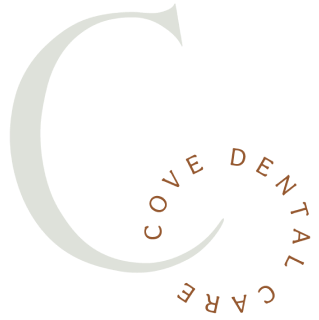105 Sheringham Dr Easley, SC 29642

Tooth Cavities in Easley, SC
Cavities, also referred to as dental caries, result from the erosion of tooth enamel and underlying structures due to decay. They commonly occur due to a combination of oral bacteria and a diet high in sugars and starches. When bacteria metabolize sugars and starches in the mouth, they produce acid, which erodes the protective enamel, leading to cavities.
The severity and size of cavities can vary, often showing no symptoms initially. However, if left untreated, cavities can progress, causing symptoms like toothache, sensitivity, and potentially tooth loss. Treatment typically involves removing the decayed portion of the tooth and filling it with materials such as composite resin or amalgam. Preventive measures, including regular dental checkups, proper oral hygiene practices, and a balanced diet, are essential for reducing the risk of cavities.
What Causes Cavities?
Everyone harbors bacteria in their mouth, but not all bacteria are detrimental. Oral hygiene is crucial to eliminate harmful bacteria from your smile. Maintaining oral cleanliness reduces the proliferation of harmful bacteria, thereby lowering the likelihood of developing cavities.
A balanced diet also plays a vital role in cavity prevention. Sugars serve as a primary energy source for bacteria. While the dangers of excessive sugar consumption are well-known, it's important to recognize that carbohydrates and starches can also be broken down into sugars. Foods like pasta and bread undergo this breakdown process during digestion, providing additional sustenance for oral bacteria.
Moreover, the duration of exposure to sugars and starches influences tooth decay. Prolonged exposure provides bacteria with ample time to consume these substances and produce acid, altering the pH level in the mouth to favor cavity formation. Saliva ordinarily maintains a neutral pH, but when bacteria metabolize sugars, acidity levels rise, fostering conditions conducive to tooth decay. Frequent snacking or consumption of sugary beverages perpetually replenishes bacteria's food supply, sustaining acid production and increasing the risk of cavities.
Preventing Cavities:
If a tooth is lost, prompt replacement is essential to avoid escalating side effects. At our Easley, SC dental office, we offer a range of tooth replacement options to address your needs without delay.
Our focus extends beyond addressing existing cavities; we prioritize preventive care to mitigate the need for invasive interventions. Through personalized consultations, we discuss dietary habits, recommend oral hygiene products, and provide guidance on effective home care practices.
Should you suspect a cavity, prompt action is key. Delaying treatment allows decay to progress unchecked, potentially leading to severe complications such as abscesses, painful pulp infections, or eventual tooth loss. Don't hesitate to schedule a visit to our office at the first sign of trouble.
Treating Cavities:
Traditionally, cavities are treated with dental fillings. In the past, amalgam fillings containing mercury were commonly used. Nowadays, composite resin fillings that match the color of your teeth are more prevalent. They offer a subtler appearance and are less noticeable in your mouth, while also eliminating the risk of mercury toxicity.
Before commencing treatment, we administer a local anesthetic to ensure your comfort throughout the procedure. The infected material is completely removed, and the tooth cavity is meticulously cleaned. The dental filling material bonds to the tooth, providing a durable solution. We ensure proper hardening and setting of the filling, allowing you to use the tooth comfortably without pain.
In cases of larger decayed areas, inlays or onlays may be necessary. These restorations bridge the gap between dental fillings and crowns. Inlays fill the hollow of the tooth without affecting the cusps, while onlays cover the cusps and are sometimes referred to as partial crowns. They address many issues that crowns do but are less invasive.
Know More About Cavities
Cavities, also referred to as dental caries, pose a common dental concern with implications for overall health and wellness. These decayed areas on tooth surfaces result from the interplay of bacteria, sugars, and acids in the mouth. While primarily impacting dental health, cavities can also be linked to broader systemic health issues.
Originating from inadequate oral hygiene and excessive sugar intake, cavities develop as bacteria metabolize sugars into acids, gradually deteriorating the protective enamel layer. If untreated, cavities can penetrate deeper into the tooth, potentially reaching the pulp and causing significant pain and infection.
The connection between cavities and overall health stems from the potential dissemination of oral bacteria into the bloodstream, often facilitated by gum inflammation or infection (periodontitis). This bacterial presence in the blood, termed bacteremia, has been associated with heightened risks of cardiovascular conditions like heart disease and strokes.
Moreover, the discomfort and distress associated with cavities can detrimentally affect one's quality of life, manifesting as challenges with eating, speaking, sleep disturbances, and persistent pain. Additionally, poor oral health has been implicated in diabetes, as gum disease-related inflammation may exacerbate insulin resistance.
By prioritizing proper oral hygiene, regular dental check-ups, and a balanced diet, individuals not only preserve dental health but also potentially mitigate risks of associated health ailments. The interconnection between cavities and systemic health underscores the integral role of comprehensive dental care in promoting overall well-being.

